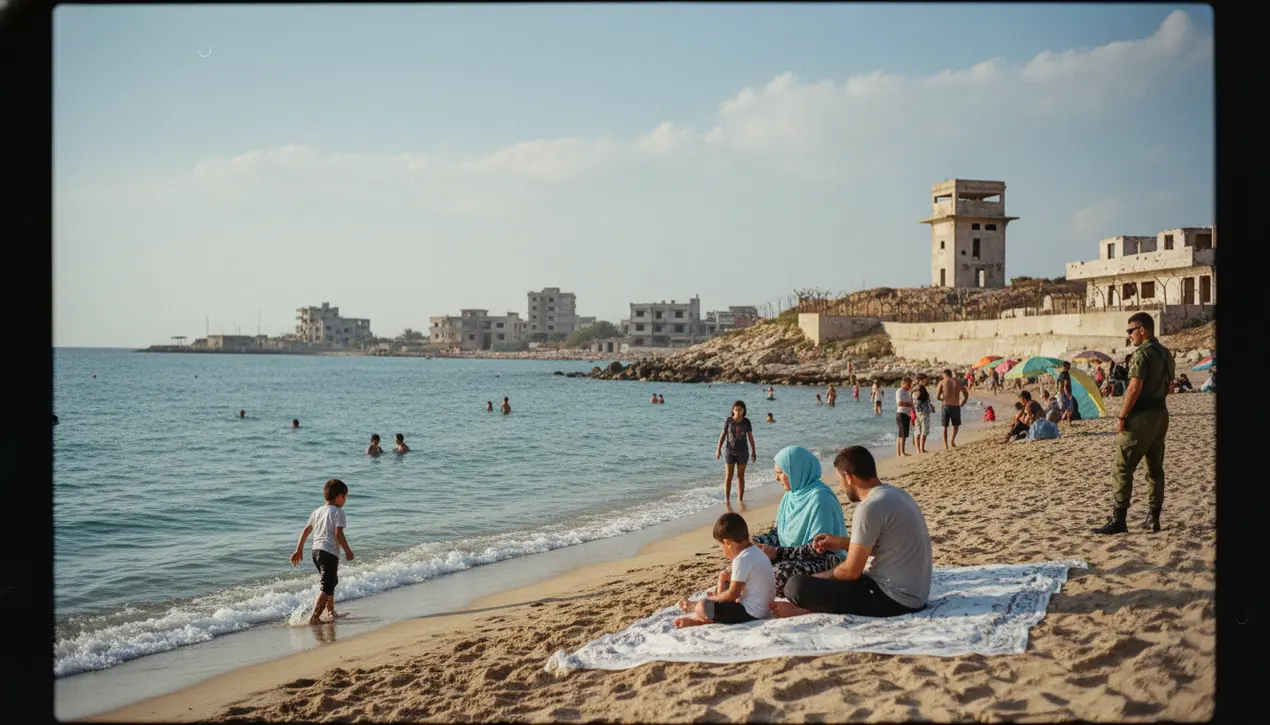
Politicsconflict & defenseWar Reports and Casualties
The Great Syrian Beach Trip: A Sign of Changing Times.
EM
Emma Wilson
2 hours ago7 min read
The image is almost jarring in its simplicity: families spread out on sun-bleached towels, children chasing waves that lick at the Syrian coastline, the air thick with the scent of salt and grilling corn. For years, the beaches of Latakia and Tartus were places of silence and fear, where a casual stroll could attract the attention of state security, a visit to the seaside not an act of leisure but a potential prelude to arrest, interrogation, and torture.The sand bore witness to a different kind of imprint then—the heavy boot of a regime that viewed any public congregation with deep suspicion, where the very act of seeking a moment of normalcy was itself an act of defiance. Today, the scene is transformed.The Syrian coast is thrumming with a tentative, fragile life. After more than a decade of a brutal civil war that has fractured the nation, displaced millions, and normalized a level of suffering that is difficult to comprehend, this return to the shoreline is more than a seasonal outing; it is a profound, if precarious, signal of a change in the atmosphere.It speaks to a relative, and deeply localized, calm in government-held areas, a space where the immediate, existential threat of violence has receded enough for the most fundamental human rituals to cautiously re-emerge. This is not a declaration of peace—the country remains shattered, with vast swathes beyond the regime's control and an economy in freefall—but rather a glimpse into the human spirit's relentless drive for normalcy.Analysts observing the region point out that this public reclamation of space is a critical barometer. 'In authoritarian contexts, the ability to gather in public without fear is a key indicator of shifting security dynamics,' notes one researcher with the European Institute of Peace, who requested anonymity to speak freely.'It suggests the state feels secure enough in its territorial hold to allow this kind of social activity, and the population, in turn, feels a marginal decrease in the pervasive risk that defined daily life. ' The contrast is a stark historical parallel.One can recall the 'Beirut Riviera' of the early 2000s, where a similar blossoming of beach life followed the end of Lebanon's civil war, a powerful, visible symbol of a city stitching itself back together. Yet, the Syrian case is infinitely more complex and less conclusive.This is not a nationwide peace dividend but a patchwork of stability, purchased at an unimaginable cost and contingent on a fragile geopolitical stalemate. The sunbathers in Tartus are enjoying a privilege inaccessible to millions of their compatriots in Idlib or the ravaged suburbs of former rebel strongholds.The economic reality also casts a long shadow; while the elite may flock to refurbished resorts, for the average Syrian, the trip is a significant expense in a country where the currency has collapsed and poverty is the norm. The simple act of buying an ice cream for a child on the beach represents a small victory against an economic siege as relentless as the military one.The consequences of this nascent normalcy are multifaceted. For the Assad regime, it offers a potent propaganda tool, a visual narrative of 'returning life' that it can project to its remaining support base and the outside world, despite the ongoing humanitarian catastrophe.For the Syrian people, it is a psychological salve, a necessary, desperate gasp of air after years of suffocating fear. It is a reminder of what was, and a fragile hope for what might one day be again—not just a day at the beach, but a life lived without the constant, looming specter of violence. The waves continue to crash, indifferent to the wars of men, and for now, at least for some, they are just waves again.
#Syria
#conflict
#beach
#safety
#relaxation
#human rights
#editorial picks news
Stay Informed. Act Smarter.
Get weekly highlights, major headlines, and expert insights — then put your knowledge to work in our live prediction markets.
Comments
Loading comments...
© 2025 Outpoll Service LTD. All rights reserved.